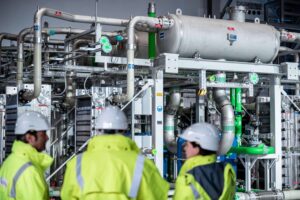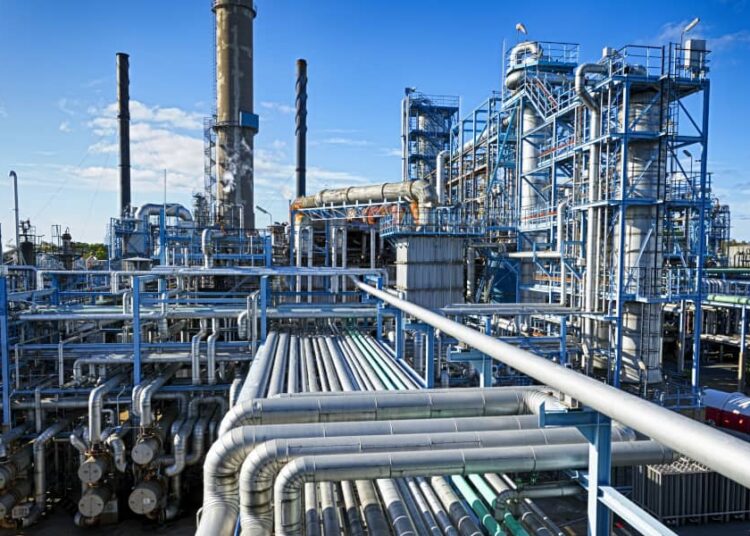The state is making great strides in bringing about comprehensive and sustainable development in all fields through launching investment projects across the country.
The investment file is Egypt’s top priority during this stage, Prime Minister Moustafa Madbouli has said.
The government is working on several tracks in order to provide a favourable environment for growth and attract more investment, Madbouli said during his recent meeting with board members of the Egyptian Federation of Investors Associations (EFIA).
The government will take necessary steps to support investment and promote industry, Madbouli said.
The prime minister referred to the incentives launched by the government over the past period, adding that more incentives are on the way, to attract investment.
The government takes into consideration any proposals or comprehensive strategies which help to boost the local economy, he said.
The government stands fully ready to hold direct contact with various relevant parties in this respect.
As part of its Vision for 2030, the state believes in the vital role of green investments for promoting inclusive growth, creating more jobs, and ensuring environmental sustainability, Minister of Planning and Economic Development Hala el-Saeed said in recent remarks.
Under the fiscal year (FY) 2024-2025 investment plan, the state targets a 50 per cent increase in the share of green investments, the minister said.
The Sovereign Fund of Egypt (TSFE) is working to attract green infrastructure investments, Saeed noted.
As part of a structural reform programme, the government has introduced several important facilities to create an environment conducive to green investments by rolling out more incentives for the private sector, el-Saeed said.
The government also gives high priority to public-private partnerships through the three-year old TSFE, established as a reliable mechanism to unlock assets for private investors to become investment partners with the government.
The government has also launched the Friends of Greening National Investment Plans for Africa and Developing Countries Initiative during the COP27 conference in Sharm el-Sheikh last November.
Meanwhile, Egypt has made great progress in attracting foreign investments over the past few years. With its rich history, cultural heritage, and a strategic location linking Europe, Asia, and Africa, the country offers investors numerous incentives to tap into a rapidly growing market.
The government has been working tirelessly to create a business-friendly environment that encourages foreign investment, and these efforts have paid off in recent years.
One of the key factors driving investment in Egypt is the government’s commitment to economic reform. The country launched an ambitious economic reform programme in 2016 aimed at boosting growth, reducing public debt, and creating jobs.
The programme included measures to reduce subsidies, implement value-added taxes, and liberalise the exchange rate. These reforms have helped to stabilise the economy and create a more favourable business climate, which has in turn attracted local and foreign investors.
In addition to these economic reforms, the government has also taken steps to improve infrastructure and streamline bureaucratic measures, making it easier for businesspeople to launch investment projects in various fields across the country.
Egypt has been investing heavily in infrastructure, through executing a series of development projects such as the expansion of the Suez Canal, the construction of new airports, and the establishment of new industrial zones.
These infrastructure projects have created new opportunities for investors. The government has also launched initiatives aimed at attracting vital sectors of great importance to national economy, such as tourism and renewable energy.
Egypt has long been a popular destination for tourists, and the government has launched a number of initiatives to encourage more visitors to the country.
This includes investing in new infrastructure such as airports and hotels, as well as promoting the country’s cultural heritage and natural attractions.

In the renewable energy sector, Egypt has made significant strides in recent years, with investments in wind and solar power projects, including the Benban Solar Park in Aswan, the world’s largest solar park, which has a capacity of 1.8 GW and is expected to reduce carbon dioxide emissions by 2 million tons per year.
Egypt is working on increasing the supply of electricity generated from renewable sources to 42 per cent by 2035.
The Egyptian government is committed to continuing its efforts to attract foreign investment and promote economic growth.
The government has exerted more efforts to enable the private sector, including the launch of the State Policy Document and Golden Licence, Minister of Finance Mohamed Maeet has said in recent remarks.
The government offers a range of incentives to foreign investors, including tax exemptions, simplified procedures for obtaining permits and licences, and access to a large and growing market.
This has made the country an attractive destination for investors looking to set up manufacturing facilities or expand their existing businesses.
Above all, Egypt has invested heavily in developing its infrastructure, including ports, airports, and road networks to facilitate trade with neighbouring countries.






Discussion about this post